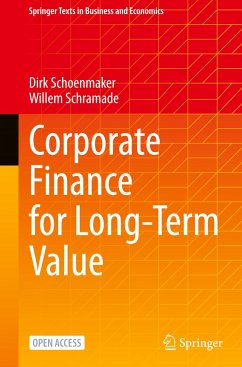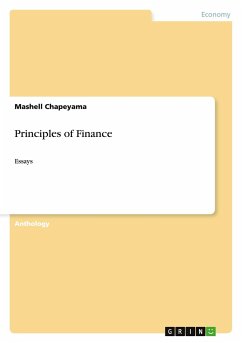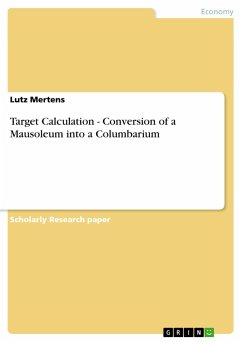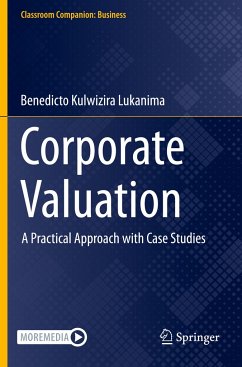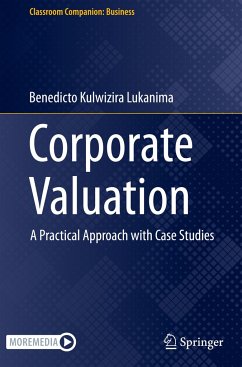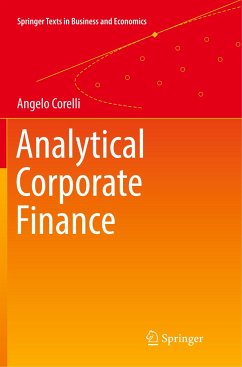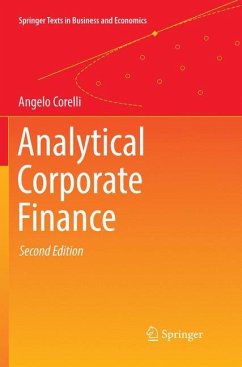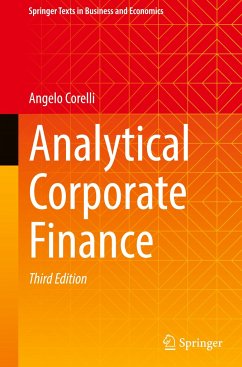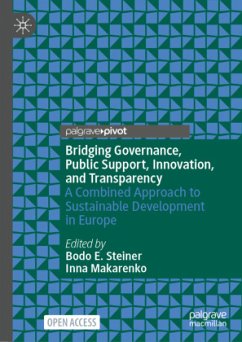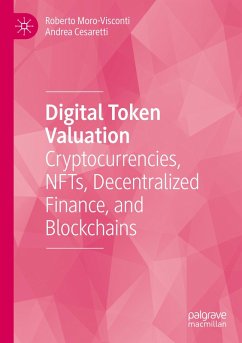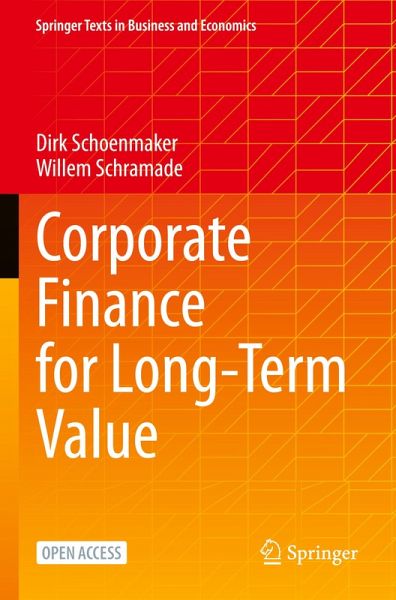
Corporate Finance for Long-Term Value

PAYBACK Punkte
16 °P sammeln!
This open access textbook offers a guide to corporate finance for modern companies that want to create long-term value. Drawing on recent literature on sustainable companies, it starts by analysing the Sustainable Development Goals as a strategy for the transition to a sustainable economy. Next, it translates the general concept of sustainability into core corporate finance methods, such as net present value, company valuation, cost of capital, capital structure and M&A.Current corporate finance textbooks are primarily based on the shareholder model, designed to maximise financial value. This ...
This open access textbook offers a guide to corporate finance for modern companies that want to create long-term value. Drawing on recent literature on sustainable companies, it starts by analysing the Sustainable Development Goals as a strategy for the transition to a sustainable economy. Next, it translates the general concept of sustainability into core corporate finance methods, such as net present value, company valuation, cost of capital, capital structure and M&A.
Current corporate finance textbooks are primarily based on the shareholder model, designed to maximise financial value. This book instead adopts the integrated model, which argues that companies have to serve the interests of their current and future stakeholders. Accordingly, companies move from simply maximising financial value to optimising integrated value, which combines financial, social and environmental value. Applying this new paradigm of integrated value is the truly innovative feature of this textbook.
Written for undergraduate and graduate students of Finance, Economics, and Business Administration, this textbook provides a fresh analysis of corporate finance. Combining theory, empirical data and examples from actual companies, it reveals the sustainability challenges for corporate investment and shows how finance can be used to steer funds to sustainable companies and projects and thus accelerate the transition to a sustainable economy.
Current corporate finance textbooks are primarily based on the shareholder model, designed to maximise financial value. This book instead adopts the integrated model, which argues that companies have to serve the interests of their current and future stakeholders. Accordingly, companies move from simply maximising financial value to optimising integrated value, which combines financial, social and environmental value. Applying this new paradigm of integrated value is the truly innovative feature of this textbook.
Written for undergraduate and graduate students of Finance, Economics, and Business Administration, this textbook provides a fresh analysis of corporate finance. Combining theory, empirical data and examples from actual companies, it reveals the sustainability challenges for corporate investment and shows how finance can be used to steer funds to sustainable companies and projects and thus accelerate the transition to a sustainable economy.



